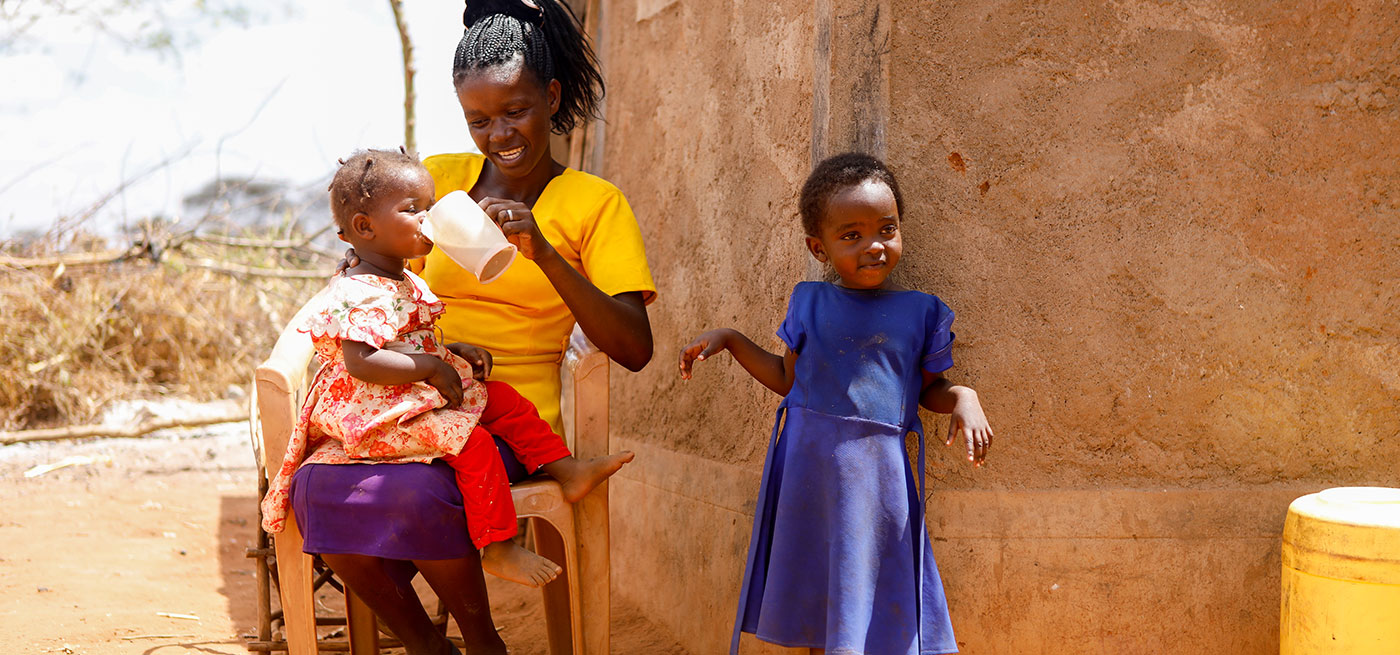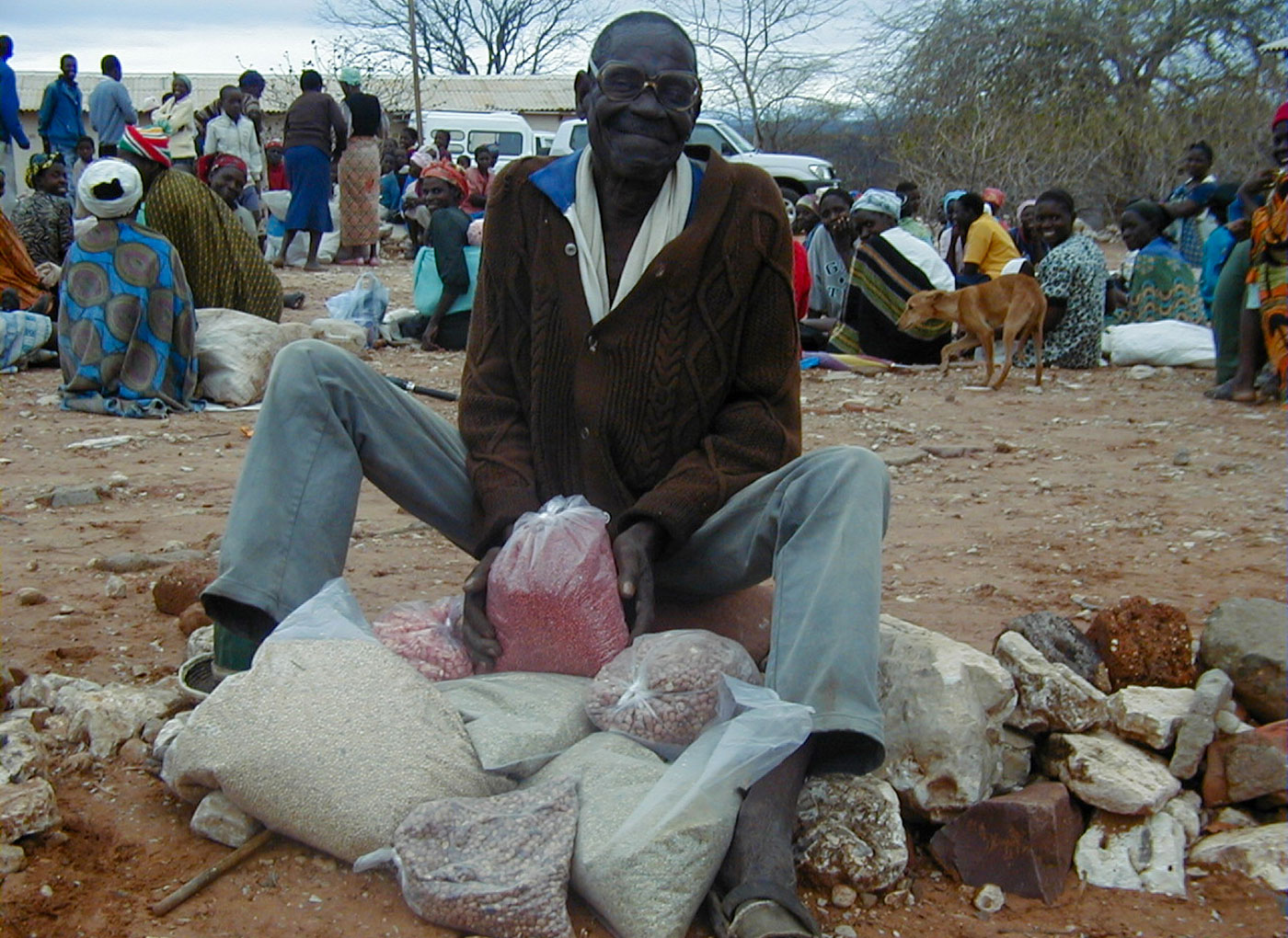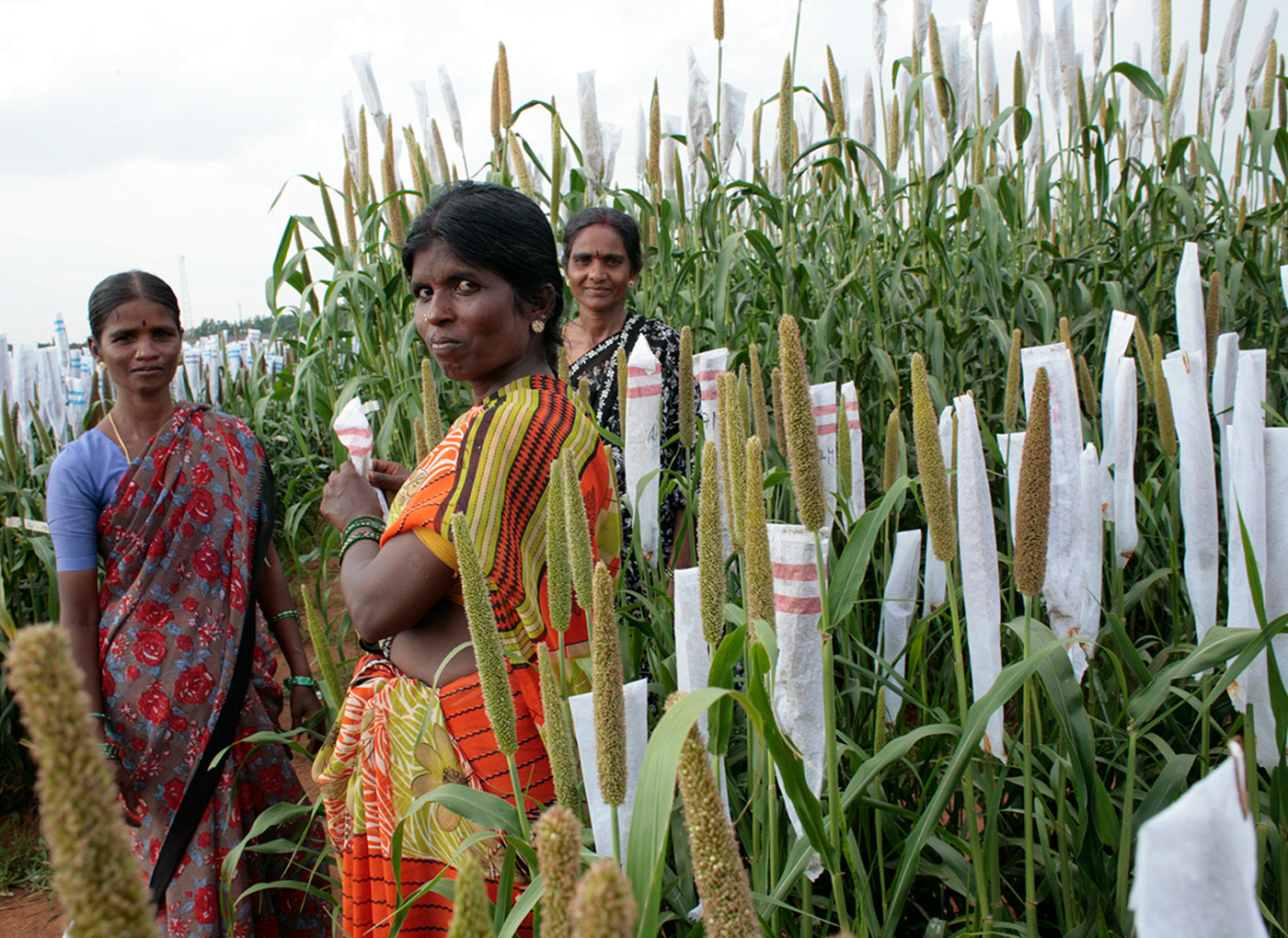We are dedicated to tackling one of the world's most pressing challenges – achieving Sustainable Development Goal 2 (SDG 2): Zero Hunger
Through our unwavering commitment to improving food security and nutrition in the drylands of Asia and Africa, ICRISAT plays a crucial role in ensuring that no one is left behind in the fight against hunger and malnutrition. Our efforts center around the research and development of vital crops such as chickpea, pigeonpea, groundnut, sorghum, pearl millet, finger millet, and other small millets, which are essential components of achieving zero hunger.
Enhancing Crop Productivity and Resilience: ICRISAT's research is dedicated to developing improved and climate-resilient crop varieties suited to the challenging agro-climatic conditions of the drylands. Chickpea, pigeonpea, groundnut, sorghum, pearl millet, finger millet, and small millets are essential staples for millions of people in the region. By enhancing the productivity and resilience of these crops, we ensure a steady and sustainable food supply, even in the face of climate change and unpredictable weather patterns.
Improving Nutritional Value and Diversity: ICRISAT recognizes the importance of diverse and nutritious diets for combating malnutrition and hunger. Many of the crops we focus on, such as finger millet and pearl millet, are rich sources of essential vitamins, minerals, and proteins. By promoting the cultivation and consumption of these nutrient-rich crops, we contribute to enhancing the nutritional value and dietary diversity of communities, thus addressing the challenge of hidden hunger.
Empowering Smallholder Farmers: Smallholder farmers are at the heart of ICRISAT's mission to achieve SDG 2. We work closely with these farmers, empowering them with access to improved seeds, sustainable farming practices, and knowledge transfer. By equipping farmers with the tools and resources they need, we enable them to increase their crop yields and improve their household food security.
Climate-Smart Agriculture: Climate change poses a significant threat to agriculture, especially in the drylands. ICRISAT's research focuses on climate-smart agricultural practices, such as water-efficient irrigation, conservation agriculture, and climate-resilient crop varieties. By promoting climate-smart agriculture, we help farmers adapt to changing environmental conditions, safeguard their crops, and ensure food security for vulnerable communities.
Strengthening Food Systems and Value Chains: ICRISAT collaborates with various partners, including governments, NGOs, and private sector actors, to strengthen food systems and agricultural value chains. By improving market linkages, post-harvest handling, and value addition, we help smallholder farmers access better markets and earn higher incomes. Stronger food systems contribute to increased food availability, accessibility, and affordability for communities.
Research and Innovation: ICRISAT remains at the forefront of agricultural research and innovation. Our scientists continually explore new ways to enhance crop productivity, nutritional content, and sustainability. Through cutting-edge research, we aim to develop transformative solutions that address hunger and malnutrition challenges effectively.

Africa

ICRISAT was awarded the 2021 Africa Food Prize for its work that resulted in improved food security across 13 countries in sub-Saharan Africa.
In 2018, Chakti, a high iron and zinc pearl millet variety was released in Niger. Subsequently, the variety is being examined in ten locations across Niger, Nigeria, Mali, Burkina Faso, Ghana and Senagal and in over 10,000 farmers'fields.
Our extensive work on reducing aflatoxin contamination and our low cost aflatoxin testing kit has radically improved food safety.
Asia

Biofortified crops bred for improved iron and zinc provide a cost-effective and sustainable approach for addressing malnutrition.
High iron and zinc pearl millet (Dhanashakti) is the first biofortified crop cultivar to be officially released in India. It has been included in the Nutri-Farm Pilot Program launched by the Government of India and 94,000 households benefited from its cultivation.
In 2018, ICRISAT-bred Parbhani Shakti, a Iron and Zinc sorghum variety, with better protein content (11.9%) was released in India in partnership with Indian NARS.
Our Genebank conserves over 129,000 accessions of 11 crops and is a signatory to International Treaty on Plant Genetic Resources for Food and Agriculture (ITPGRFA). Our efforts towards germplasm conservation is key to secure the future of agriculture and enhance worldwide food sustainability.